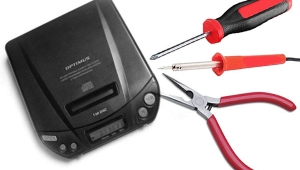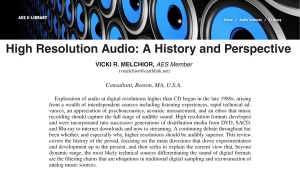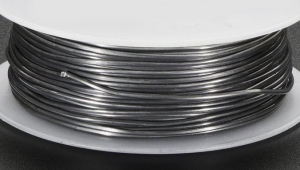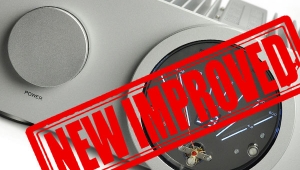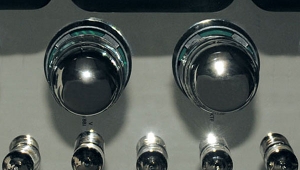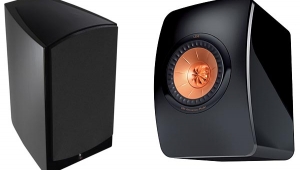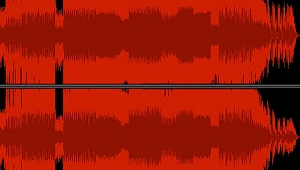| Columns Retired Columns & Blogs |
Legitimate Dealers Speak Out!
In his April 16, 2001 website essay "Where's Our Freedom of Audio Choice?" reader Jim Tavegia railed against the ubiquitous policy of manufacturers only allowing their products to be available through selected retailers. "If I'm willing to pay the UPS costs, it should be my prerogative to buy equipment anywhere I please," he wrote. This echoes a controversy that appeared in the print magazine 15 years ago. The affair started with some innocent-looking text written by Audio Cheapskate Sam Tellig in the December 1985 Stereophile (Vol.8 No.8):
Footnote 1: The subject of what can happen when audiophiles don't support their local retailer was also explored at length in two Barry Willis articles for Stereophile, "Invaded by the Grays" (June 1996) and "E-Commerce & Specialty Audio Retailing" (May 2000), and in a smaller way in John Atkinson's "The High-End Review" (September 1993). And it should be noted that the 2001 Audio Advisor is not a trans-shipping operation but a legitimate specialty audio retailer and distributor. The authors of the letter, Neil & Evelyn Sinclair, are now the principals of Theta Digital.—Editor
Where to Buy
I generally recommend buying from local dealers, though I've departed from that course in past recommendations. The advantages of a local dealer: if it's broken, you can take it back; if you don't like it, you can usually exchange it for something else; a dealer can set stuff up (particularly crucial with turntables and tonearms). But some times you know exactly what you want, and want to save money; or sometimes (frequently, if you don't live on one of the coasts) no local store has what you want. In such circumstances, you can get just about anything, typically at 15-20% off, from the Audio Advisor, Grand Rapids, Michigan.
For mass-market items, you can always try one of the mass-market mail-order discounters: Illinois Audio, in Chicago—(800) 621-8042—or Wisconsin Discount Stereo, in Madison, a division of the All American Appliance Company—(800) 356-9514, ask about their microwave ovens with wireless remote. And there's always Crazy Eddie or Tokyo Shapiro; just don't expect them to have heard of the Audible Illusions or the Lazarus. Magnavox CD players are sold through catalog showroom stores in many parts of the country, and that's where you seem to get the lowest prices.
Overall, though, your local dealer can probably be persuaded to give you some kind of a break; you may spend more, but end up feeling a lot less hassled about your purchase. And it may work a lot better.—Sam Tellig
We received a great deal of mail in response. Then-publisher Larry Archibald decided to pen an editorial note in the March 1986 issue, to introduce a cry from the heart from the owners of a specialty audio retailer:
The following letter addresses a reference made in "The Audio Cheapskate," Vol.8 No.8; that one reference generated more dealer comment than all the positive and negative comments the Cheapskate has made in all the time he's written for Stereophile! In the interests of fairness we are publishing the following response from the owners of Absolute Audio (Orange, CA); for what it's worth, the publisher tends to side with the retailers who offer full service—even at list price (footnote 1).—Larry Archibald
Legitimate Dealers Speak Out!
Editor: Of all the stereo magazines, Stereophileis the one that most often expresses opinions that concur with our own. Tony Cordesman is particularly insightful, lucid and readable. When we evaluate a component, form opinions, and then read reviews, Stereophile's almost always seems like they went the same route we did; other publications come off more randomly. It's hard not to be attached to something that agrees with you and supports your judgments.
That's why we'll take the time to address one subject that is very painful; "The Audio Cheapskate," Vol.8 No.8, and the attitude expressed towards dealers.
Everybody loves to save money, of course. Getting a good deal is an enjoyable feeling, even for wealthy people, and no one wants to feel that they foolishly overpaid. The Audio Cheapskate recognizes this and cheerfully tries to help people save money but in telling people to support mail-order houses instead of full-service specialty dealers, he is encouraging a very depressing trend that, eventually, is likely to kill off the entire audiophile phenomenon.
We're not exaggerating.
We call it the "Crown Books" syndrome. When Crown came to southern California there were thriving bookstores; some, like Papa Bach, were famous for a library-like variety of offerings. Staffed with intelligent, helpful people, these places could be literary havens, meeting places for poets and scholars. Crown's concept was a lot more efficient: they limited buying to best-sellers. In buying those in bulk, their ordering and stocking is simple; by ignoring arcane titles, they guarantee quick turnover of merchandise; in having no need for a knowledgeable, educated staff, wages could be cut to practically nothing. Their limited selection requires little valuable square footage per store, so they rent many facilities and make themselves convenient. All this streamlining enables them to entice customers with discounts the traditional stores couldn't afford.
Footnote 1: The subject of what can happen when audiophiles don't support their local retailer was also explored at length in two Barry Willis articles for Stereophile, "Invaded by the Grays" (June 1996) and "E-Commerce & Specialty Audio Retailing" (May 2000), and in a smaller way in John Atkinson's "The High-End Review" (September 1993). And it should be noted that the 2001 Audio Advisor is not a trans-shipping operation but a legitimate specialty audio retailer and distributor. The authors of the letter, Neil & Evelyn Sinclair, are now the principals of Theta Digital.—Editor
- Log in or register to post comments


